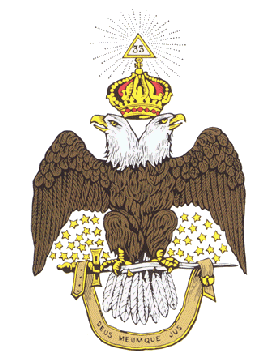Following the craft freemasonry degrees, there are a vast number of separately administered degrees and orders available solely to craft freemasons in England and Wales. Beyond the three degrees of craft freemasonry, the Holy Royal Arch is the only degree officially recognised by the United Grand Lodge of England (UGLE) under the English Constitution. Other orders and degrees, on the other hand, are referred to and recognised by the Grand Master of the United Grand Lodge of England, and all of its members are required to be masons under the English Constitution. The following are some of the most well-known Masonic appendant bodies:
In England and Wales, the Holy Royal Arch is performed as a separate degree from Craft Freemasonry. Members gather in Royal Arch Chapters, which are each affiliated with a Craft Lodge and have the same number. The Supreme Grand Chapter administers the Order, which is situated at the headquarters of the United Grand Lodge of England in Freemasons’ Hall, London, and shares several officers with it. In England and Wales, craft lodges usually have a Royal Arch Representative, and recently raised Master Masons are actively urged to pursue exaltation into the Holy Royal Arch before joining any other Masonic organisation.
The Order of Mark Master Masons. This degree is exclusively granted under the English Constitution at Mark Masons’ Lodges, which are independent of the United Grand Lodge of England and administered from Mark Masons’ Hall in London. Members of the Order may also join the Royal Ark Mariners.
The Order of the Secret Monitor. According to the English Constitution, the Order meets in Conclaves, each of which is led by a Supreme Ruler. The Masonic Order is administered from Mark Masons’ Hall in London. Members of the Order may also join the Scarlet Cord Order.

The Ancient and Accepted Rite of England and Wales, is known informally as “Rose Croix.” The Rite meets in Rose Croix Chapters and is available solely to Master Masons who believe in the Christian Holy Trinity, according to the English Constitution. Candidates are ‘perfected’ at the 18th degree, with the earlier degrees being conferred solely in name. Those who have served as the chair of the Chapter are eligible to continue to the 30th degree and beyond. The Order is administered by London’s ‘Supreme Council 33° for England and Wales.’
The Knights Templar. Membership is only offered by invitation. Candidates must be Master Masons, Royal Arch Masons, and Christians who believe in the Christian Holy Trinity. Preceptories are where Knights Templar gather. The Order is run from Mark Masons’ Hall in London, and members can also join the Knights of Malta or the Knight Templar Priests.
Mark Masons’ Hall in London serves as the administrative headquarters for the Order of Royal and Select Masters. It operates the degrees of Select Master, Royal Master, Most Excellent Master, and Super-Excellent Master, demonstrating the connection between the degrees of Master Mason, Mark Master Mason, and the Holy Royal Arch.
The Order of the Red Cross of Constantine, the Holy Sepulchre, and St John the Evangelist, sometimes known informally as the “Red Cross of Constantine.” Candidates must be Master Masons, Royal Arch Masons, and Christians who believe in the Christian Holy Trinity. Conclaves are gatherings of members. The Order has three degrees and administers two unique appendant orders, both of which are Christian in nature. The Order is run from Mark Masons’ Hall in London.
The Allied Masonic Degrees, a collection of five previously distinct degrees, are exclusively bestowed by invitation. Candidates must be Master Masons, Royal Arch Masons, or Mark Masons. Members may be invited to join the Order of the Knight Masons as well. The Order holds Councils and is governed from Mark Masons’ Hall in London
Development of disadvantaged children in Tower Hamlets supported by London Freemasons’ grant to Half Moon charity
Read moreIslington children and families can connect with nature thanks to London Freemasons
Read moreLondon's Youth with Learning Disabilities Receive Support Thanks to London Freemasons
Read more